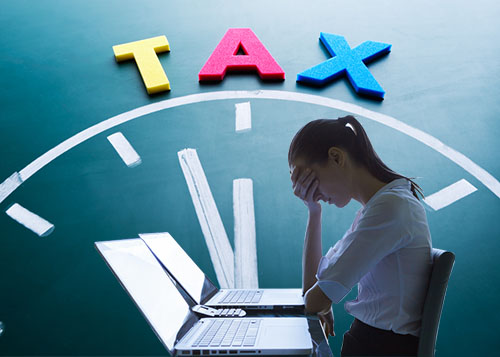Mistakes to Avoid While Filing Your Income Tax in Singapore
 IRAS (Inland Revenue Authority of Singapore) is the agency that supervises Singapore tax filing by the taxpayers. It has to be accurate as the agency takes mistakes in it very seriously.
IRAS (Inland Revenue Authority of Singapore) is the agency that supervises Singapore tax filing by the taxpayers. It has to be accurate as the agency takes mistakes in it very seriously.
According to IRAS, all the self-employed or salaried individuals residing in Singapore have to pay personal income tax, if their annual income exceeds S$22,000. Due date for filing personal income tax is 15 April of each year.
Let us face it, some of the mistakes smell like the taxpayer is trying to evade the tax. On the other hand, even a genuine mistake looks like an attempt of tax evasion. So go through the following information carefully and avoid a few of the genuine Singapore tax filing mistakes.
Do not Understate Your Income
Well, the IRAS officials have to be on their toes to find taxpayers who, purposefully or mistakenly, understate their income to reduce their tax amount. This is one of the common occurrences in the Singapore tax filing. Few of the companies honestly forget to include all of their sales receipts or invoices in their statements. However, IRAS do not look upon this slip of mind as a mistake. And for the taxpayer, the omission proves to be a costly one.
It may be hard to believe that some of the taxpayers through ignorance or deliberate attempt try to pass their non-deductible expenses as deductible ones or get their expenses incorrect. Some of them even fail to preserve their transaction records for the recommended five years. The only way of avoiding this mistake is to hire an experienced accountant or outsource to an accouting firm in Singapore and follow the rules and regulations strictly during tax filing.
Declare Your Overseas Income
According to the law, income earned abroad by the Singapore-based individuals working for the Singapore-based employers needs to be considered while Singapore tax filing. Government employees who often goes abroad for the Singapore government is an example of such taxpayers.
Include Your Rental Income
When the law states that all your income is taxable, it also includes the rent you collect from your property. You need to itemize it describing all the circumstances if you are charging extra for the extra facilities provided. Do not forget to mention total gross rent from your property.
Differentiate Between Business and Personal Expenses
Self-employed taxpayers need to be really careful when it comes to Singapore tax filing. Take care not to mix the personal expenses as your business expenses.
They need to give all their business expenses which they want to claim as deductible expenses. Deduct the cost of doing business and allowable business expenses from the profit from your business to arrive at the final figure on which you have to pay tax.
It is a great habit for the self-employed individuals to keep a detailed record of their income and expenses.
Report Taxes Based on Documents and not Estimates
When you file your taxes, make sure that they are well supported with the documents. IRAS demands evidence or proof in support of your claims. So be farsighted and keep all your receipts and invoices whatever the amount.
Yes, Singapore tax filing is a tricky subject and is better left to the accountants. Alternatively, you can hire Singapore taxation services like SBS Consulting to take care of it.





